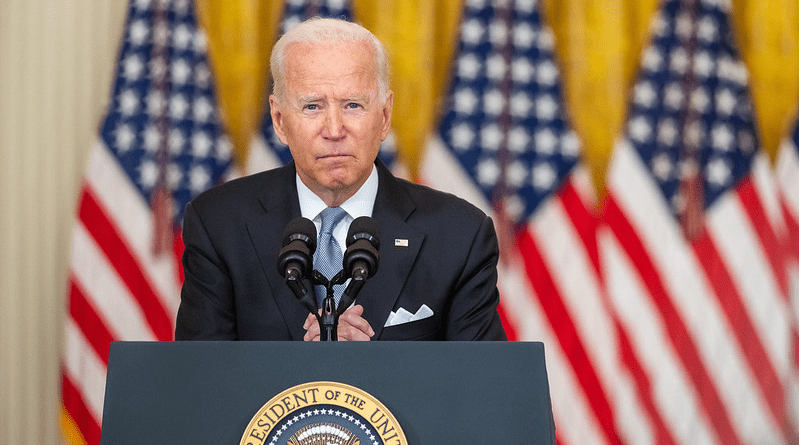Biden’s Negative Spotlight On Pakistan – OpEd
By Saad Hafiz
A US leader has picked on Pakistan again. Joe Biden has branded Pakistan as one of the most dangerous nations in the world and a country with nuclear weapons without any cohesion. Donald Trump had accused Pakistan of “deceit” before cutting off aid.
As expected, the US President’s blunt depiction of a cyclical ally of 75 years hurt feelings in Islamabad. But is the tag correct? Is Pakistan an out-of-control country with nukes that threaten global security? Surely that description more accurately applies to Russia. Its leader, Vladimir Putin, often threatens to use nuclear weapons in his genocidal campaign to subdue Ukraine.
Biden’s comments would apply to other nuclear weapon states if political stability and internal cohesion were the sole yardsticks. For instance, the US appears more divided than ever. And the outcome of November’s mid-term elections could reinforce the political paralysis in Washington. Post-Brexit UK is battling a leadership and economic crisis, and France faces a winter of discontentment after fuel strikes. Arguably, India and Israel are more cohesive than Pakistan. Russia, China, and North Korea don’t count because they are authoritarian states that maintain cohesion through the barrel of a gun.
The White House follow-up to Biden’s comments about a secure and prosperous Pakistan being critical to America’s interests suggests that the adverse political, financial, and social indicators rather than the security of nuclear weapons are the US’s primary concern.
Yet the timing of Biden’s undiplomatic comments is strange. Bilateral relations have improved with a new government in Islamabad. Relations had reached a low ebb after former Prime Minister Imran Khan accused the US of engineering his removal. In a futile bid to stay in power, Khan blamed an international conspiracy in cahoots with local conspirators for his ouster.
But it is hard to see a positive trajectory for Pakistan that would allay Biden’s concerns at the moment. The state of the country does not look promising. Elite infighting and social unrest threaten to spiral out of control. And ineffective leadership, economic woes, population explosion, rising poverty, erosion of human rights, and the rule of law could speed up state breakdown. Pakistan’s poor standing in global governance, corruption, and food security indexes reflect its frailties.
The reality is that the US-Pakistan relationship has not recovered since Osama bin Laden’s discovery and killing by American forces in Abbottabad. Further, Pakistan’s perceived role in helping the US’s humiliating exit from Afghanistan worsened the mistrust and ill will between the two countries. And the US’s growing strategic partnership with India, aimed at countering the threat from China, has upset Pakistan. It is a marked change from the heady highs of the relationship after the Soviet invasion of Afghanistan and the US war on terror. At that time, the US showered military and economic aid on Pakistan.
Pakistan has to contend with the longstanding concern in the western policy circles that it is a failing state — a country rapidly descending into chaos with jihadis poised to take over its nukes. Islamabad has done little to allay fears of this doomsday scenario. Bland statements that Pakistan is a responsible nuclear state with well-protected nuclear assets are unconvincing. Such facile protestations get scant attention amidst Pakistan’s political instability, economic crisis, and rising militancy. Devastating damage from the recent floods has stressed Pakistan’s vulnerabilities.
Yet, the US must resist the urge to stigmatize Pakistan and distance itself from its besieged democracy. It should continue to engage with Pakistan in strengthening governance, ending repression, and improving education, the underlying causes of conflict and instability. Both sides also have good reasons to maintain security cooperation, the linchpin of the relationship.
Pakistan must avoid knee-jerk reactions to Biden’s hardball remarks. It has to remember that the US is the dominant superpower and its biggest trading partner. And anti-Americanism and populist gimmickry will not help a divided country in ceaseless turmoil. It is time for good sense to prevail.
This article was published at The Friday Times

